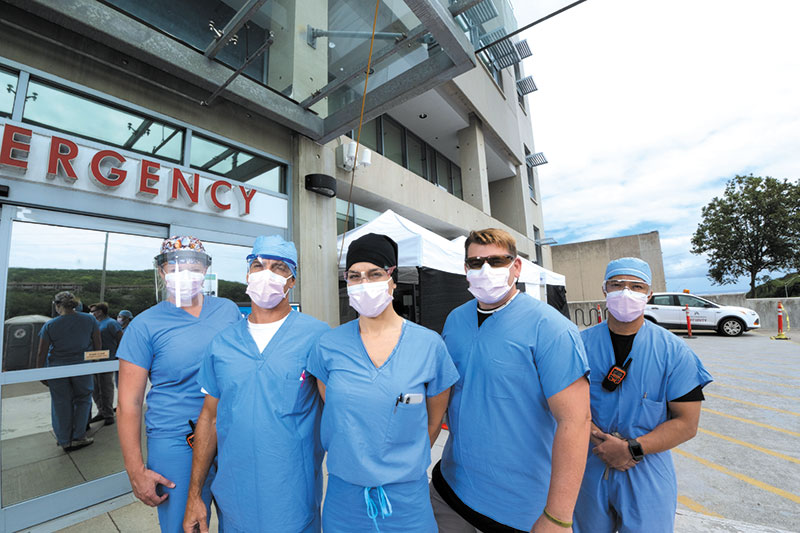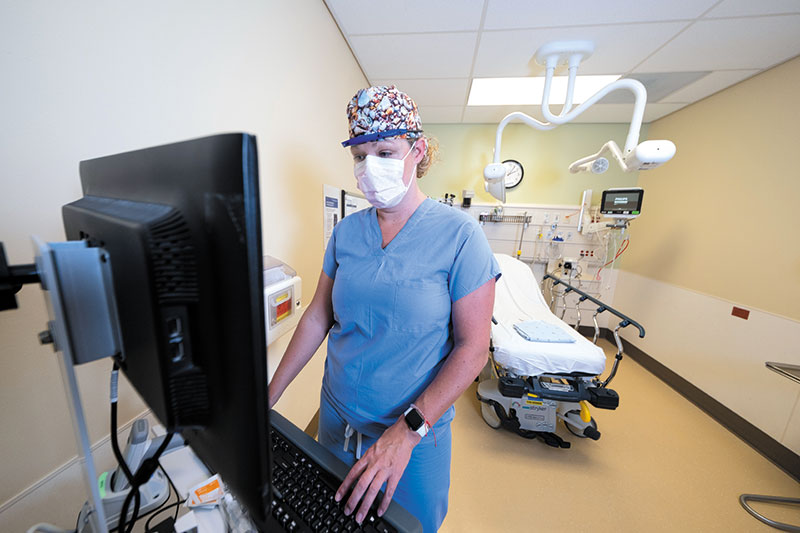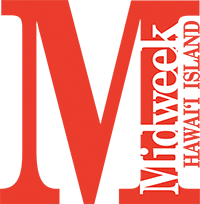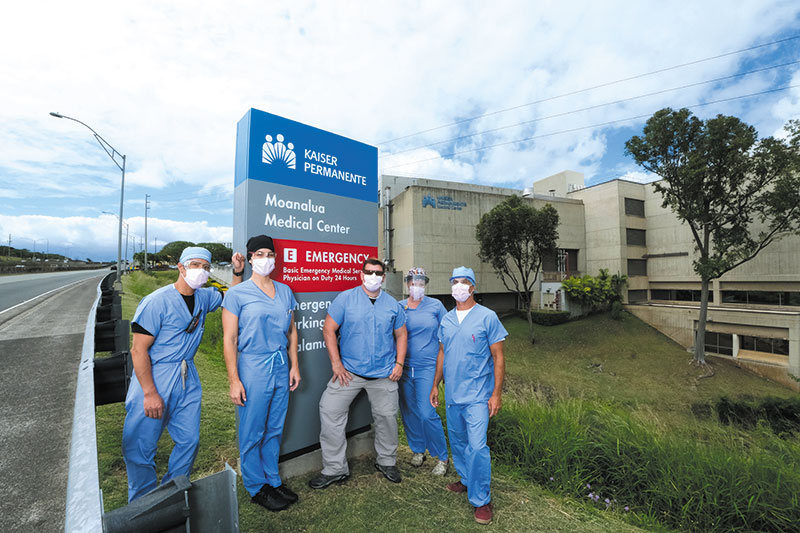Nursing Hawaii To Health

More than ever, Hawai‘i’s nurses deserve praise for their efforts in protecting and nursing patients back to health. It’s why Kaiser Permanente Hawai‘i honored its health care workers such as such as ER nurses Amanda Smith, Steve Wallace, Angela Bassola and Todd Albritton, and ER tech Michael Balisacan during National Nurses Week May 6-12.
Within the walls of Kaiser Permanente Hawai‘i clinics — including its Līhu‘e location — are 1,440 frontline health care workers who are always ready to protect their communities, neighbors and families.
Tasked with great responsibility, these humble heroes quite literally risk their lives every day, and that dedication to their patients hasn’t diminished, even in the face of COVID-19. In fact, it’s spurring them on to do even more to ensure the safety of Hawai‘i and its residents. Kaiser administration and staff are learning from what’s happening across the country and around the world, and tailoring its response accordingly. As the hospital responds to the ever-changing coronavirus situation, nurses remain an integral part of making sure things run efficiently and smoothly.
“They’re so flexible,” says Moanalua Medical Center chief nursing executive Kate Roche. “Nurses volunteer to go into the ICU, setting up screening tents (and) creating a team approach if we need to increase our bed capacity.

Amanda Smith, RN, is an integral part of Kaiser Permanente Hawai‘i Moanalua Medical Center’s emergency room.
“They have been leaders across different specialties.”
But that’s typical of Kaiser’s nurses, and it’s why the hospital is going above and beyond to recognize them during National Nurses Week, which ran May 6-12.
Of course, 2020 is a landmark year as it marks the 200th anniversary of the birth of Florence Nightingale, the founder of modern nursing. It’s why the World Health Organization designated the start of the decade the “Year of the Nurse and Midwife.”
“Nightingale was someone who walked in when others walked away,” explains Roche. “She really began to put basic principles in place, the foundation of who we are and what we do as a profession — and our nurses are doing exactly that.”
Kaiser Permanente Hawai‘i wants to honor all the work their nurses do, especially during such a milestone celebration. Take a drive past its Moanalua Medical Center on O‘ahu and you’ll see on the tallest building the following words in big block letters: Heroes Work Here.
Roche sees their dedication and courage firsthand as chief nursing executive, a position she’s held for only a handful of months. When she’s not overseeing policies and procedures, best practices and strategic planning, you can find her walking the halls and talking story with the nurses under her purview.
“Personally, my favorite thing about my job is that I get to work with nurses all day, every day,” she says. “I get to partner with a team committed to what they do. I have the privilege of leading them, but they are on the frontline. They deliver the care.
“When the world steps back, health care providers, particularly nurses, step forward,” adds Roche, MS, RN CENP. “We walk in prepared with the right training, the right equipment. We step up in these times, and our jobs as nurses is to care for those in need.”
Kaiser has been putting a lot of focus on growing its telehealth capacities, something that’s coming in handy in recent months. Currently, about 80 percent of primary care appointments are done virtually, either through phone or video visits, and that’s continuing to pave the way into the future for the medical group.
“We are adapting pretty well,” says Megan Canne, RN, BSN.
Members rely on advice nurses like Canne for answers and direction, and this service is in even higher demand now due to COVID-19.
“They fear the unknown and call wondering how the pandemic will affect them, their health and especially their loved ones,” she explains. “It’s our job to give them a sense of calm. We want to deliver a sense of comfort virtually.”
The task, though, can be difficult because Canne and her peers have to possess the technical knowledge and out-of-the-box thinking — and the ability to collabo-
rate with physicians and others on the patient’s medical team — to make decisions for care based on subjective symptoms they can’t really see. But, she wouldn’t trade it for the world.
“It’s gratifying to help by delivering reassurance and compassionate guidance so they get the care they need during this difficult time.”
Around the globe, changes are also taking place in emergency rooms where telehealth and video visits are rarely an option.
“We’ve completely had to rethink how we do medicine in the ER,” explains Amanda Smith, RN. “What we did yesterday is not what we’re going to do tomorrow. It’s adapting daily.”
As an ER charge nurse, Smith is able to see all aspects of care. She has a hand in personalized interactions, as well as the protocols currently set in place to comply with social distancing. Tents were set up outside its main O‘ahu facility to avoid overcrowding, and the workflow for nurses, doctors and staff has changed to reduce contact time for patients and how much time they spend in the ER.
Smith describes herself as an ER nurse down to the core.
“I truly love my job,” she says. “As hard as our job is right now, and as trying as it is, there’s no one else that can do what we do.”
While responsibilities and procedures have changed for Kaiser’s nurses, the biggest impact comes when they return to their families — if they can. After hourslong shifts at the hospital, they
look forward to heading home to decompress and enjoy time with their loved ones. But to keep their own families safe, many have to practice extreme social distancing.
“Like my coworkers and everyone on the frontlines, we are at the highest risk, so I have to social distance from my children,” explains Smith. “I see them once a week, we go for a lunch date but stay 12 feet apart.
“Everyone has to do their part. We are all making sacrifices right now.”
Yet, these nurses and the rest of the health care industry continue to do their jobs — and do them well — even as they enter into the unknowns of COVID-19.
“I’m watching our nurses step up,” adds Roche. “It’s heroic what they do.”


